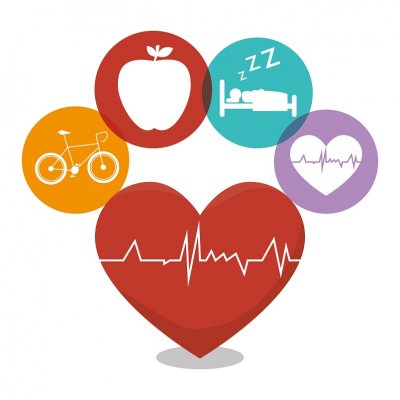What is lifestyle medicine? Why do physical therapists need to know about it?
First, let’s start with a definition. The American College of Lifestyle Medicine (ACLM), founded in 2004, defines lifestyle medicine as:
“Lifestyle medicine is the use of evidence-based lifestyle therapeutic approaches including:
- a whole food, plant-based eating pattern
- regular physical activity
- restorative sleep
- stress management
- avoidance of risky substances
- positive social connection
as a primary therapeutic modality, delivered by clinicians trained and certified in this specialty, to prevent, treat, and often reverse chronic disease.”1
So, are the ACLM components of lifestyle medicine new? Let’s take a look at a couple historical sources:
- An ancient Greek physician, Hippocrates (460-370 BC), said, “If we could give every individual the right amount of nourishment and exercise, not too little and not too much, we would have found the safest way to health.”
- Florence Nightingale (1820-1910), the founder of modern nursing, said, “The symptoms or the sufferings generally considered to be inevitable and incident to the disease are very often not symptoms of the disease at all, but of something quite different—of the want of fresh air, or of light, or of warmth, or of quiet, or of cleanliness, or of punctuality and care in the administration of diet, of each or of all of these.”
From a personal perspective, I learned about the various aspects of lifestyle medicine from my parents. My father was a physician specializing in internal medicine, and he routinely talked about the importance of sleep, stress management, wholesome nutrition, and physical activity to stay sharp and fit. He told me he emphasized these components with his patients so they could recover and heal faster. On the other hand, my mother focused on the practical aspects of wellness by preparing healthful foods for the family. She even taught me how to cook in junior high school. For this reason, I’m very interested in culinary medicine (perhaps a topic for another day). Mom also washed our clothes using lavender soap shavings to keep everyone calm and happy.
Even though information about lifestyle medicine is not new, the ACLM is a leader in disseminating research and information about lifestyle medicine to healthcare providers and wellness professionals. For further information, here are some resources to explore:
- American College of Lifestyle Medicine
- American College of Preventive Medicine
- Institute of Lifestyle Medicine
Next, let’s take a quick look at some research:
- A position statement from the American College of Lifestyle Medicine in the American Journal of Lifestyle Medicine2 concludes that “Remission should be the clinical goal in type 2 diabetes (T2D) treatment, using properly dosed intensive lifestyle interventions as a primary component of medical care for T2D patients.”
- A population-based, prospective cohort study in the BMJ3 assessed diet, exercise, social connections, cognitive activity, and use of risky substances (smoking, alcohol) and found that a healthy lifestyle is associated with slower memory decline in individuals 60 years or older.
- A randomized controlled trial in the European Journal of Pain4 found that a healthy lifestyle intervention consisting of weight loss, physical activity, and diet may be cost-effective compared to usual care for managing chronic low back pain.
As healthcare research continues to evolve, so must our clinical practice.
Additional Readings
- Egger G, Binns A, Rossner S, Sagner M, eds. Lifestyle Medicine: Lifestyle, the Environment and Preventive Medicine in Health and Disease, 3rd ed. Academic Press; 2017.
- Frates B, Bonnet JP, Joseph R, Peterson JA. Lifestyle Medicine Handbook: An Introduction to the Power of Healthy Habits, 2nd ed. Healthy Learning; 2021.
- Garner G, Tatta J, eds. Integrative and Lifestyle Medicine in Physical Therapy. OPTP; 2022.
- Mechanick JI, Kushner RF, eds. Lifestyle Medicine: A Manual for Clinical Practice. Springer International Publishing; 2016.
- Rippe JM. Manual of Lifestyle Medicine. CRC Press; 2021.
- Rippe JM, ed. Lifestyle Medicine, 3rd ed. CRC Press; 2019.
- Sidossis LS, Kales SN. Textbook of Lifestyle Medicine. John Wiley & Sons, Inc.; 2022.
References
- American College of Lifestyle Medicine. Accessed May 15, 2023. https://lifestylemedicine.org
- Kelly J, Karlsen M, Steinke G. Type 2 diabetes remission and lifestyle medicine: a position statement from the American College of Lifestyle Medicine. Am J Lifestyle Med. 2020;14(4):406-419. doi:10.1177/1559827620930962
- Jia J, Zhao T, Liu Z, et al. Association between healthy lifestyle and memory decline in older adults: 10 year, population-based, prospective cohort study. BMJ. 2023;380:e072691. doi:10.1136/bmj-2022-072691
- Williams A, van Dongen JM, Kamper SJ, et al. Economic evaluation of a healthy lifestyle intervention for chronic low back pain: A randomized controlled trial. Eur J Pain. 2019;23(3):621-634. doi:10.1002/ejp.1334
Author Bio:
Ziya “Z” Altug, PT, DPT, MS, OCS, is a Board-Certified Orthopaedic Clinical Specialist and a Doctor of Physical Therapy with 32 years of experience treating musculoskeletal conditions. He uses lifestyle and integrative medicine strategies in his clinical practice. Ziya is the author of Integrative Healing: Developing Wellness in the Mind and Body (Cedar Fort, Inc, 2018). Ziya has been a longstanding member of the American Physical Therapy Association for the past 29 years and a member of the American College of Lifestyle Medicine since 2017. He is finishing the book, Lifestyle Medicine Toolbox (Jessica Kingsley Publishers, London) for publication in early 2024.

